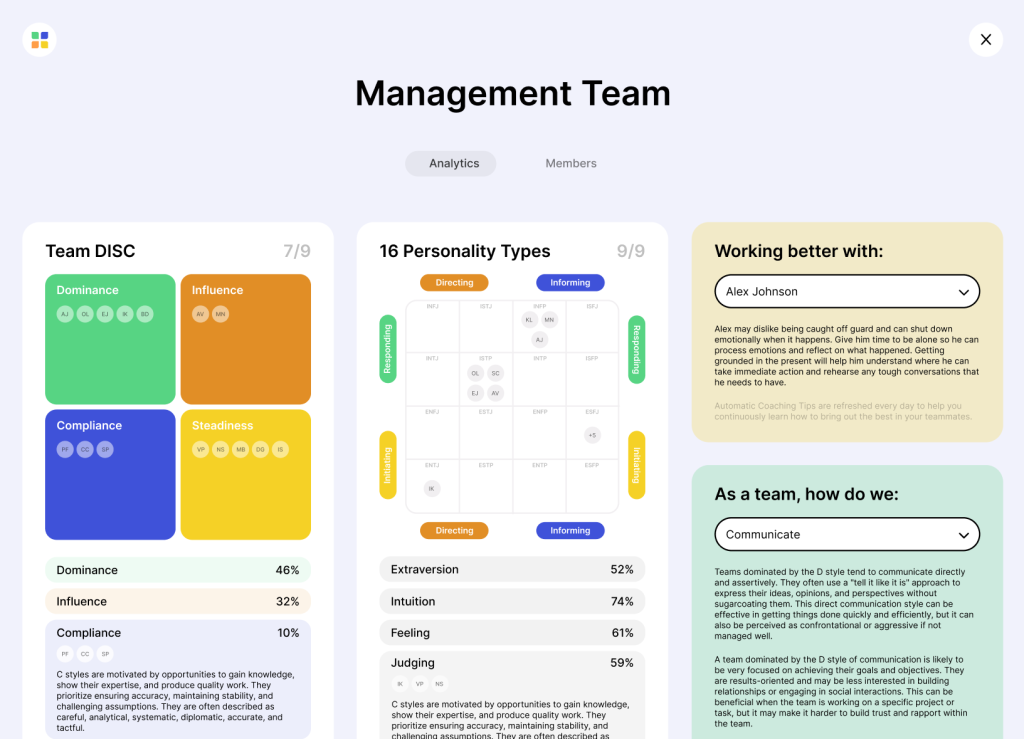When people hear ‘psychosis,’ the typical image that comes to mind is severe mental disturbances, hallucinations, and sometimes even violence. However, psychosis can vary from this typical image significantly.
Some individuals who experience psychosis have a psychotic disorder, which requires serious attention from mental health professionals. Others experience it as a side effect from drugs, other mental illnesses, or more.
Instead of ignoring these psychotic experiences, it is key for people to take action to prevent further mental damage. Those who have psychotic disorders need not only family support, but the support of physicians as well.
If you or someone you know suffers from psychotic episodes, it is also crucial to learn more about this condition.
In this article, we will describe what psychosis is, its causes, and how to overcome it.
What Is Psychosis? Definition & Meaning
There are many mental conditions that influence your ability to recognize reality. Psychosis is one such condition. Through chemical changes in your brain, those who have psychotic lose the ability to differentiate between reality and hallucinations.
This could affect the way you feel, see, hear, touch, and interpret any one of your senses. Psychosis is not a diagnosis, though. It is associated with many different disorders. There are also many causes of psychosis, ranging from drug use, alcohol abuse, sexual abuse, other mental conditions, stress, or some other event.
There is a branch of mental health disorders known as psychotic disorders. Included in this branch are schizophrenia, brief psychotic disorder, bipolar disorder, and more. The most common age for these disorders to develop is in adolescence or early in your adult years.
There is typically an early onset of these symptoms. At first, you may notice small changes in your perception of reality, which later escalate into psychosis. When these changes are occurring, you are in what is called a prodromal period.
Some people experience psychosis even without any other mental health condition. If your only symptom is psychosis, you may be experiencing secondary psychosis or a brief psychotic disorder.
The latter is categorized with short-term changes in your perception, which are sudden onset.
When these short-term disturbances occur, there are usually other causes related to it. Some individuals experience psychotic episodes after using marijuana, taking illicit drugs, drinking alcohol, or even taking a prescribed drug.
Other times, another medical condition leads to psychosis. Typically, these psychotic episodes do not last long. If you can find what caused the episode and address it, you will likely get rid of the psychosis as well.
Signs and Symptoms of Psychosis
Every individual who experiences psychosis has a unique set of symptoms. This is so because different substances or experiences (certain drugs, marijuana, alcohol, trauma, etc.) cause psychosis to present in different ways.
However, psychosis does not usually start suddenly and out of the blue, unless you have a brief psychotic disorder. Take a free psychosis assessment to find out.
Some of the top signs of psychosis include (in chronological order):
Warning Signs Of Psychosis
At first, you will probably experience slight changes in your senses and the way you perceive reality.
Some of the signs that you may experience:
- Difficulty thinking or concentrating
- Decreases in your job performance or school performance
- Uneasiness when around others and decreased social intelligence or social skills
- Neglecting your self-care
- Confused speech and trouble talking
- Paranoid ideas about the world (such as being followed)
- Spending more time than usual by yourself
- Lack of emotional awareness and difficulty controlling your emotions, leading to outbursts
- On the flip side, ignoring your negative emotions or experiencing no emotions at all
Signs of Early Psychosis
After some time, your slight changes in perception may escalate.
The following would be signs of early psychosis:
- Having hallucinations, hearing or seeing things that no one else can confirm are real
- Difficulty differentiating the real world from fantasy
- Having strange beliefs that were previously not in-line with your personality
- Rejecting other’s thoughts on reality and attempts to persuade you to think in other ways
- Distancing yourself from your friends and loved ones
- Continuing to neglect your hygiene and health needs; complete halt of self-care
- Not being able to focus on one thing at a time
- Changes in your basic personality traits
- Atypical emotional reactions and severe outbursts of emotions
Causes & Triggers of Psychosis
There are a variety of different triggers which can lead to psychosis. Some of these causes are within your control, while others unfortunately are not.
Researchers are still not precisely sure on why psychosis develops, but some factors that seem to trigger psychosis include:
- Genetics – There seem to be some genes that influence the development of certain psychotic disorders, such as schizophrenia. However, even if you have a genetic marker that makes you susceptible to psychosis, you may not get the disorder.
- Drugs – Individuals often experience psychotic episodes after taking illicit drugs. Common drugs that lead to psychosis include marijuana, LSD, amphetamines, and more. This also includes abuse of alcohol or prescription drugs.
- Trauma – Trauma can be another cause of psychosis. After one’s loved one dies, the individual experiences sexual assault, they come close to death, war, or experiences of any other form of trauma, and this can lead to psychosis.
- Other health conditions and injuries – Physical injuries, such as concussions, traumatic neural damage, brain tumors, hemorrhages, dementia, HIV, Alzheimer’s, epilepsy, thyroid conditions, or Parkinson’s disease can all lead to forms of psychosis.
Types of Psychosis
Psychosis is not a diagnosis. In fact, are many different types of psychosis that lead to different diagnoses.
A few of the most common types are described below.
Brief psychotic disorder
Brief psychotic disorder, also sometimes referred to as brief reactive psychosis, is a short-term period of psychosis. It usually has a quick and sudden onset. Typically, individuals experience this type of psychosis after severe trauma and stress.
For instance, if someone’s loved one dies, they experience abuse, or has to go to war, they may have periods of brief psychosis. Usually, symptoms of this form of psychosis go away within days. Sometimes, they last a few weeks depending on the stress levels and trauma of the individual.
Drug- or alcohol-related psychosis
Another primary cause of psychosis is drugs or alcohol. Any stimulant which severely interferes with the brain’s natural chemistry has the ability to cause psychosis.
Some drugs are specifically called hallucinogens, which include LSD, cannabis, and ecstasy. These drugs cause the individual to experience hallucinations, but only for a short period of time. Even some prescription drugs, like steroids and stimulants, can cause psychosis.
Because of the strong relationship between drugs, alcohol, and psychosis, those with substance abuse often experience hallucinations and delusions. After withdrawal, individuals may still experience psychosis for some time.
Organic psychosis
Mental trauma and taking drugs are two common causes of psychosis. However, there can also be psychosis triggers to this phenomenon. Organic psychosis occurs as a result of physical conditions.
For instance, if you get psychosis after a traumatic brain injury, illness, infection, hormonal disturbance, or other health condition, you would have a form of organic psychosis.
How Is Psychosis Diagnosed?
Individuals who have psychosis sometimes overlook their symptoms and do not reach out to medical professionals. This is unfortunate, since the only way to be officially diagnosed is through visiting a mental health professional.
Once someone does commit to visiting their psychologist or similar physician, they will perform a psychiatric evaluation. They will ask you questions relating to your mental health and stability. For instance, they may ask you about your relationships, how you perceive the world, new changes in thoughts and behavior, among other questions. You can also ask the physician questions about your experiences if you would like.
Sometimes, doctors want to perform additional testing on those with psychosis. They may suspect another condition is leading to psychotic episodes. As such, they may ask you to undergo an X-Ray, MRI, CT scan, or further mental or physical evaluations.
Diagnosing Psychosis In Children And Teenagers
Diagnosing a child or adolescent with a psychotic disorder is different from the adult procedure. The same symptoms that are psychotic in adults may not be unhealthy for children. For instance, many children fear someone is following them in the dark.
They may play make-believe and genuinely believe their stories are real. This is simply because children have underdeveloped brains and highly active imaginations. There is no serious mental condition at play.
If you are genuinely worried about your child’s behavior, the best step you can take is to schedule an appointment with their doctor. They may refer your child to a specialist if their behavior is indeed concerning.
If not, they may just ask you a few questions about the child’s behavior and emotions, afterward confirming it is nothing to worry about.
How to Treat & Overcome Psychosis
Overcoming psychosis can be difficult, but it is not impossible. However, it is important to recognize that you likely cannot cure psychosis on your own.
You will need medical support and the support of friends, family, and coworkers (if possible). Most of the time, the treatment approach to psychosis includes both therapy and medication.
If you have very intense episodes of psychosis, you may need to be calmed quickly. Doctors use a method called rapid tranquilization to do this.
Rapid tranquilization is also suggested for patients who get angry quickly or threaten to harm themselves and/or others. This calming effect can come from either a drug or an injection.
Many individuals who suffer with psychotic disorders get prescribed medications called antipsychotics. These drugs will help you stay in touch with reality and overcome your hallucinations as well as delusions.
Since there are many kinds of antipsychotics, the doctor will perform an evaluation to find the best fit for your case. Some people may need the help of antipsychotics for a short period of time, just to get symptoms under control. Others may take it for longer periods of time.
Therapy is also crucial to overcome psychosis. Cognitive behavioral therapy (CBT) is used to treat psychosis. It helps individuals think more clearly. With CBT, you must consistently meet with a therapist for it to be effective.
CBT is effective in helping people overcome many types of mental disturbances, including psychosis. CBT, in combination with medication for some individuals, is the most effective way to address psychosis.
If you want to take a personality test, here is the list with free personality quizes.
Psychosis FAQ
How does a person act with psychosis?
Psychosis typically includes some combination of hallucinations and delusions. Individuals are likely to be isolated and uninterested in family outings. They may begin to believe absurd ideas or conspiracies. They may feel like they are being followed and display general signs of paranoia.
When they are emotional, those with psychotic disorders tend to react in abnormal ways (extreme emotional responses or no emotions at all). Individuals may neglect their hygiene, speak in difficult to understand language, and have beliefs that are verifiably false. For instance, they may claim to be a God or non-human animal. They may also have strange feelings, such as saying someone is following them.
What are examples of psychosis?
There are many different symptoms for psychosis. However, one common uniting factor is the believing in absurd claims or seeing/hearing people or things that are not there. For instance, someone may claim that they are being watched or that someone is controlling their every move. Other people have strange beliefs about themselves that are verifiably false. They may claim to be someone they are not, such as a historical figure or God. Psychosis could lead to people hearing voices as well.


